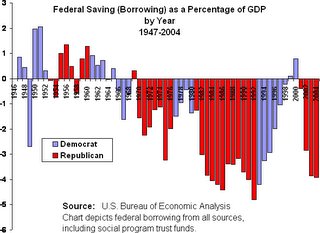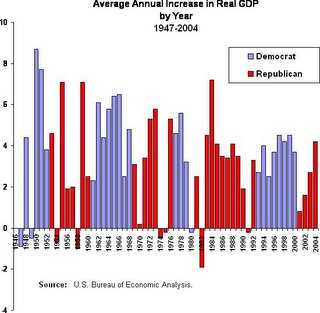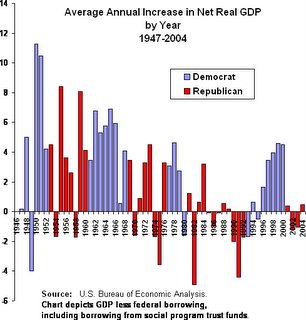"Political business cycle" was a term used to describe the ginning up of the economy just prior to a presidential election. The data in these charts describes another political business cycle.

Subsequently, Ronald Reagan erased the memory of the most desperate recession in postwar history (1981) with some good economic news in 1983-84. Never mind the debt we are still paying off. George Bush I did not get the response from Alan Greenspan he needed, and thus not the bump he needed.
Jimmy Carter was perhaps the worst player, since he backed off expansionary policies out of fears for inflation, suffered a slowdown in the last year of his first term, and did not see a second. Clinton was surely aware of the phenomenon. He didn't need to do much but crow in 1996, but in 2000, he made a calculated and unprecedented move to release stockpiles from the strategic petroleum reserve to cut energy prices in the year running up to the election. I still think if Gore had run on the economy, he would have won, instead of running on ... morals? Well, whatever he ran on.
The following charts have nothing to do with that. These simply describe the behavior of GDP and budget under the administration of the two parties. "Net GDP" is my formulation to show what the economy would have done without the borrowing. GDP is more a function of demand than supply, and when you increase demand by borrowing, GDP loses its usefulness in describing the health of the economy. Nobody is going to say credit cards are the same thing as paychecks.
If you want to get the full discussion, you'll have to buy the book. But this is what happens to GDP when you subtract the borrowing (or add surpluses), including the borrowing from Social Security and other social programs.


Note to W: Borrowing massive amounts of money because you cut taxes on the rich does not lead to economic strength.





No comments:
Post a Comment